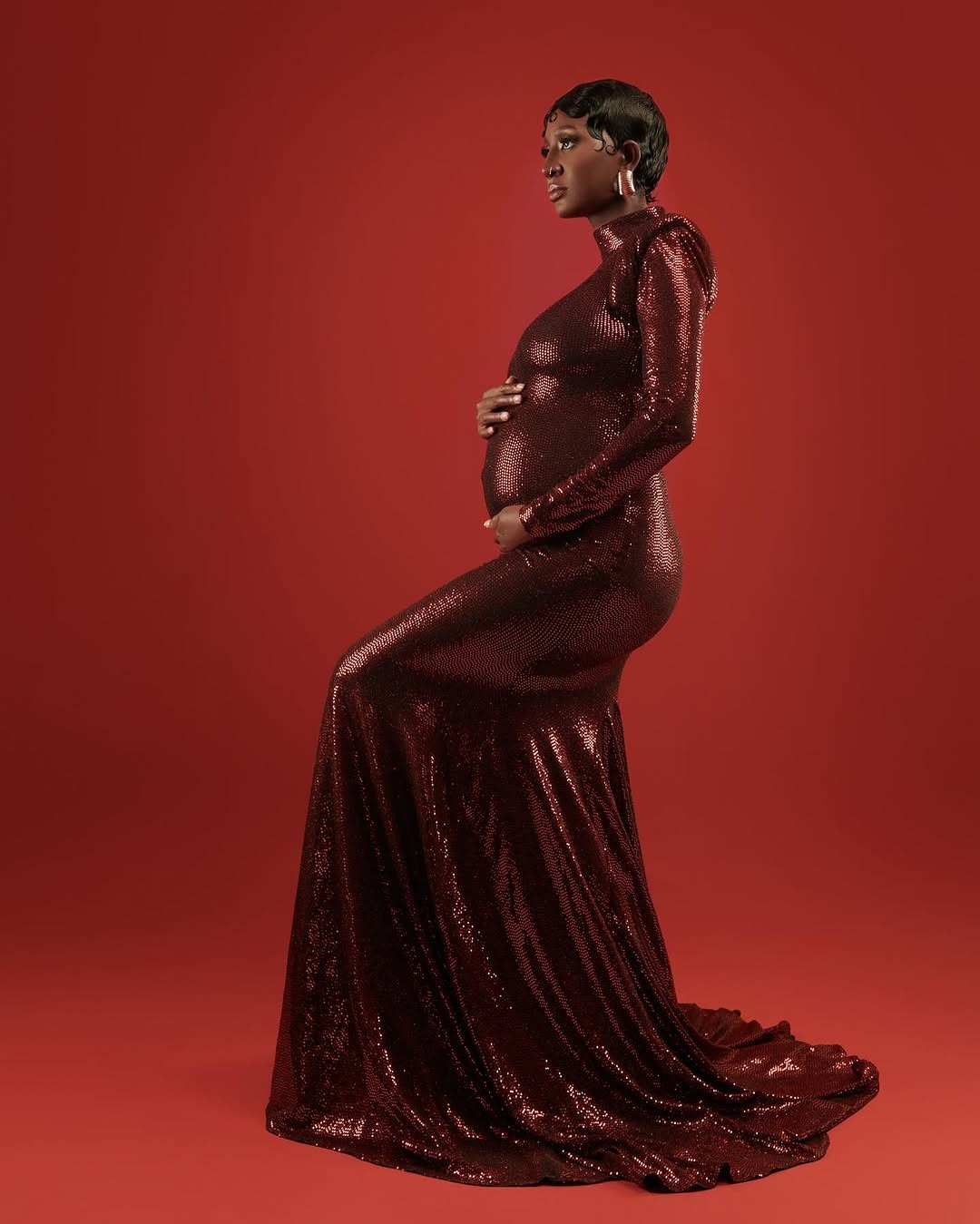A series of physical changes take place when a woman is pregnant. This is the case for Comedian Mammito who is pregnant with her first child.
Mammito unveiled her pregnancy in a wonderful video while playing football a few weeks ago. She began by confessing her celibacy journey and a day later shared the video of her babu bump.

We share with you things you need to know about the stages of pregnancy.
Pregnancy lasts about 40 weeks, counting from the first day of your last normal period. The weeks are grouped into three trimesters.
Womenshealth.gov has an extensive guide to this. The body changes Mammito could anticipate from stretchmarks to heartburn and weight gain.

Body aches
As your uterus expands, you may feel aches and pains in the back, abdomen, groin area, and thighs. Many women also have backaches and aching near the pelvic bone due to the pressure of the baby’s head, increased weight, and loosening joints.
Some pregnant women complain of pain that runs from the lower back, down the back of one leg, to the knee or foot. This is called sciatica. It is thought to occur when the uterus puts pressure on the sciatic nerve.
Breast changes
A woman’s breasts increase in size and fullness during pregnancy. As the due date approaches, hormone changes will cause your breasts to get even bigger to prepare for breastfeeding. Your breasts may feel full, heavy, or tender.
In the third trimester, some pregnant women begin to leak colostrum from their breasts. Colostrum is the first milk that your breasts produce for the baby. It is a thick, yellowish fluid containing antibodies that protect newborns from infection.

Constipation
Many pregnant women complain of constipation. Signs of constipation include having hard, dry stools; fewer than three bowel movements per week; and painful bowel movements. Higher levels of hormones due to pregnancy slow down digestion and relax muscles in the bowels leaving many women constipated. Plus, the pressure of the expanding uterus on the bowels can contribute to constipation.
Dizziness
Many pregnant women complain of dizziness and lightheadedness throughout their pregnancies. Fainting is rare but does happen even in some healthy pregnant women.
There are many reasons for these symptoms. The growth of more blood vessels in early pregnancy, the pressure of the expanding uterus on blood vessels, and the body’s increased need for food all can make a pregnant woman feel lightheaded and dizzy.

Fatigue
During your pregnancy, you might feel tired even after you’ve had a lot of sleep. Many women find they’re exhausted in the first trimester. Don’t worry, this is normal! This is your body’s way of telling you that you need more rest. In the second trimester, tiredness is usually replaced with a feeling of well being and energy. But in the third trimester, exhaustion often sets in again. As you get larger, sleeping may become more difficult. The baby’s movements, bathroom runs, and an increase in the body’s metabolism might interrupt or disturb your sleep. Leg cramping can also interfere with a good night’s sleep.
Heartbrun and indisgestion
Hormones and the pressure of the growing uterus cause indigestion and heartburn. Pregnancy hormones slow down the muscles of the digestive tract. So food tends to move more slowly and digestion is sluggish. This causes many pregnant women to feel bloated.
Hormones also relax the valve that separates the esophagus from the stomach. This allows food and acids to come back up from the stomach to the esophagus. The food and acid causes the burning feeling of heartburn. As your baby gets bigger, the uterus pushes on the stomach making heartburn more common in later pregnancy.
Hemorrhoids
Hemorrhoids are swollen and bulging veins in the rectum. They can cause itching, pain, and bleeding. Up to 50 percent of pregnant women get hemorrhoids. Hemorrhoids are common during pregnancy for many reasons. During pregnancy blood volume increases greatly, which can cause veins to enlarge. The expanding uterus also puts pressure on the veins in the rectum. Plus, constipation can worsen hemorrhoids. Hemorrhoids usually improve after delivery.
Morning sickness
In the first trimester hormone changes can cause nausea and vomiting. This is called “morning sickness,” although it can occur at any time of day. Morning sickness usually tapers off by the second trimester.
Leg cramps
At different times during your pregnancy, you might have sudden muscle spasms in your legs or feet. They usually occur at night. This is due to a change in the way your body processes calcium.
Stretchmarks and dark skin
Stretch marks are red, pink, or brown streaks on the skin. Most often they appear on the thighs, buttocks, abdomen, and breasts. These scars are caused by the stretching of the skin, and usually appear in the second half of pregnancy.
Some women notice other skin changes during pregnancy. For many women, the nipples become darker and browner during pregnancy. Many pregnant women also develop a dark line (called the linea nigra) on the skin that runs from the belly button down to the pubic hairline.
Patches of darker skin usually over the cheeks, forehead, nose, or upper lip also are common. Patches often match on both sides of the face. These spots are called melasma or chloasma and are more common in darker-skinned women.
by MAUREEN WARUINGE

